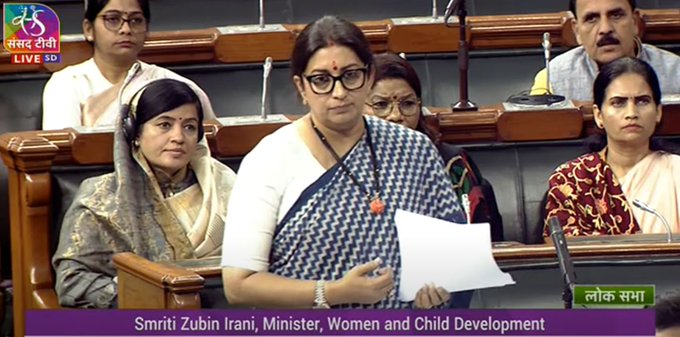Last Updated on December 17, 2022 12:27 am by INDIAN AWAAZ

Question about Maulana Azad National Fellowship
During the Zero hour on Friday Congress member K Suresh raised the issue of scrapping of the Maulana Azad National Fellowship scheme and termed it as an anti-minority move by the Narendra Modi government. He said the decision will make higher education inaccessible to underprivileged students belonging to the minority communities. He said the discontinuation of the fellowship scheme will have a pan-India adverse impact on the higher education of students belonging to Muslim, Buddhist, Jain, Christian, Parsi and Sikh. The move is an insult to Maulana Azad. It also disregards all the freedom fighters and their memories of sacrifice, he alleged.
So far, students from these six notified minority communities received financial assistance for pursuing higher education under the scheme which covers all the institutions recognised by the University Grants Commission, he said. With the discontinuation of the scheme, the higher education will become inaccessible to underprivileged students from the six notified minority communities, Suresh added.
The Maulana Azad National Fellowship, MANF scheme for the minority community students pursuing higher education has been scrapped while the government’s pre-matric scholarship for them will no longer apply to students from Class 1 to Class 8.
In a written reply to a question recently in the Lok Sabha, Minority Affairs Minister Smriti Irani said the government provided fellowships for higher education through various schemes, including the MANF, implemented by different ministries or departments.
All these schemes, except the Maulana Azad National Fellowship, are open for candidates of all communities, including minorities, but the data of fellowship distributed among minority students is included only under the Maulana Azad National Fellowship scheme, she said.
Since the MANF scheme overlaps with various other fellowship schemes for higher education being implemented by the government and minority students are already covered under such schemes,
hence the government decided to discontinue the MANF Scheme from 2022-23, Irani said.
In her intervention during a discussion in the Lok Sabha on the welfare measures for Anganwadi workers and helpers, she took a swipe at the Congress over its members’ demand for salary to them, saying that its government had told the Supreme Court in 2006 that honorarium was sufficient for them.
The honorarium for Anganwadi workers was 1,400 rupees and for those in mini-Anganwadi was 750 rupees in 2008 which has been raised to 4,500 rupees and 3,500 rupees respectively by the Prime Minister Narendra Modi-led government.
While the money spent for Anganwadi systems was 10,000 crore rupees during the earlier government, it was 18,208 crore rupees in 2021-22, she said. Those who are giving suggestions now did nothing when they were in power, she said. The Modi government also extended healthcare benefits to them during the Covid pandemic outbreak, she noted. Irani also appreciated members of different parties for expressing their views during that discussion which, she added, had begun in the House in 2020.
Constitution (Scheduled Tribes) Order (Third Amendment) Bill,
Lok Sabha on Friday passed the Constitution (Scheduled Tribes) Order (Third Amendment) Bill, 2022, which seeks to amend the Constitution (Scheduled Tribes) Order, 1950, with respect to its application to Himachal Pradesh. The order lists the tribal communities deemed to be Scheduled Tribes in states and Union territories. The Bill includes the Hattee community of Trans Giri area of the Sirmour district in the list of Scheduled Tribes in Himachal Pradesh.
Tribal Affairs Minister Arjun Munda told the House that his ministry has been working all the time to ensure that communities which deserve to get benefits under the Scheduled Tribes but remained neglected for some reason should get their rights.
He noted that a bill on the similar lines was passed by the House on Thursday to bring a community of around 27,000 people living in Tamil Nadu’s forests in the list of Scheduled Tribes.
Munda assured the members that his ministry is working in tandem with other ministries like health to address the basic concerns of tribal communities around the country. The government wants a permanent solution to their issues, he said.
Referring to some members’ concerns about displacement of tribal communities from their lands, he said land is a state subject but the Centre keeps in touch with the states over the issue.
Health Minister Mansukh Mandaviya told the Lok Sabha that more than 1,500 private hospitals have been empanelled under the Ayushman Bharat scheme in the last one year. The scheme is reviewed every month and out-of-pocket expenditure of patients under the scheme has come down, Mandaviya said, replying to a question in the Lok Sabha.
Under the scheme launched in 2018, the government provides health security cover to 10 crore families or 50 crore people of India. Today 4.5 crore needy people have been empanelled under the scheme, the minister said.
He said, the seven-eight lakh beneficiary cards are printed daily and the ministry was working to ensure that 50 crore cards are made available in the next four to six months. Poor and needy people are covered under the Ayushman Bharat scheme and they can avail five lakh rupees health security cover. Any hospital can empanel under the scheme, he said. The Minister said 22,000 hospitals, both public and private, have been empanelled under the scheme so far.
